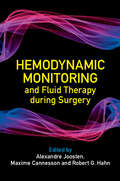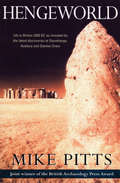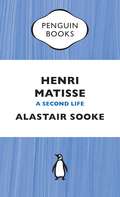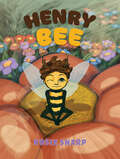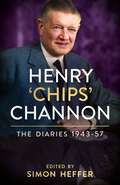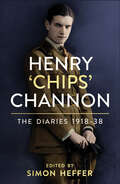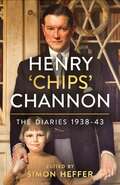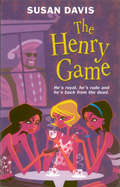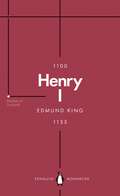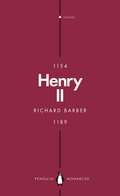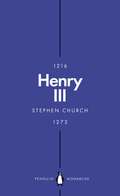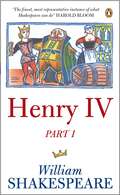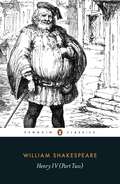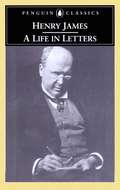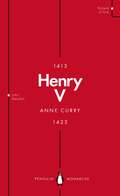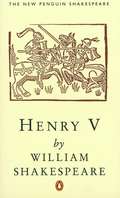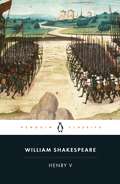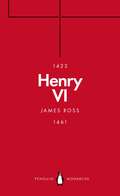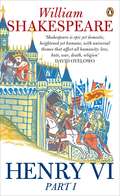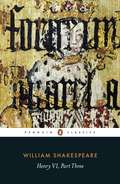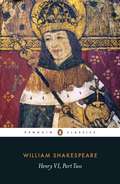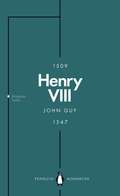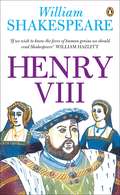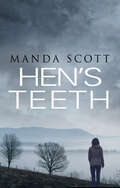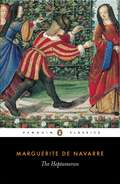- Table View
- List View
Hemodynamic Monitoring and Fluid Therapy during Surgery
by Alexandre Joosten Maxime Cannesson Robert G. HahnCombining two successful texts, Clinical Fluid Therapy in the Perioperative Setting, 2nd edition and Perioperative Hemodynamic Monitoring and Goal Directed Therapy, this revised volume provides a guide to fluid management and hemodynamic therapy for the perioperative practitioner. The book begins with an up-to-date overview of the basics before then exploring most of the current and controversial topics within hemodynamic monitoring and fluid therapy. This is followed by a section on practical use which explores hemodynamic and fluid therapy in various types of surgery and patient conditions. The book closes with a discussion of the future concepts in fluid and hemodynamic therapy ranging from microcirculation, to closed-loop and mobiles technologies. With contributions from the world's leading experts, chapters guide the reader in the application of fluid and hemodynamic therapy in all aspects of perioperative patient care. A valuable resource for those involved in perioperative patient management, including anaesthesiologists, intensivists, and surgeons.
Hengeworld
by Michael PittsIn November 1997 English Heritage announced the discovery of a vast prehistoric temple in Somerset. The extraordinary wooden rings at Stanton Drew are the most recent and biggest of a series of remarkable discoveries that have transformed the way archaeologists think of the great monuments in the region, including Avebury and Stonehenge; one of the world's most famous prehistoric monuments, top tourist site and top location for summer solstice celebrations. The results of these discoveries have not been published outside academic journals and no one has considered the wider implications of these finds. Here Mike Pitts, who has worked as an archaeologist at Avebury, and has access to the unpublished English Heritage files, asks what sort of people designed and built these extraordinary neolithic structures - the biggest in Britain until the arrival of medieval cathedrals. Using computer reconstructions he shows what they looked like and asks what they are for. This is the story of the discovery of a lost civilisation that spanned five centuries, a civilisation that now lies mostly beneath the fields of Southern England.
Henri Matisse: A Second Life
by Alastair SookeHenri Matisse by Alastair Sooke - an essential guide to one of the 20th century's greatest artists'One January morning in 1941, only a fortnight or so after his seventy-first birthday, the bearded and bespectacled French artist Henri Matisse was lying in a hospital bed preparing to die.'Diagnosed with cancer, the acclaimed painter, and rival of Picasso, seemed to be facing his demise. Then something unexpected happened. After a life-saving operation that left him too weak to paint, and often too frail to even get out of bed, Matisse invented a ground-breaking and effortless new way of making art. The results rank among his greatest work.In an astonishing blaze of creativity, he began conjuring mesmerising designs of dazzling dancers and thrilling tightrope walkers, sensuous swimmers and mythical figures falling from the heavens. His joyful and unprecedented new works were as spontaneous as jazz music and as wondrous as crystal-clear lagoons. Their medium? Coloured paper and scissors.This book, by art critic and broadcaster Alastair Sooke, focuses on Matisse's extraordinary final decade, which he called 'a second life', after he had returned from the grave. Both a biography and a guide to Matisse's 'cut-outs', it tells the story of the valedictory flourish of one of the most important and beloved artists of the twentieth century.Published in time for a major Tate Modern retrospective.'Sooke is an immensely engaging character. He has none of the weighty self-regard that often afflicts art experts and critics; rather he approaches his subjects with a questioning, open, exploratory attitude' Sarah Vine, The Times 'His shows are excellent - clever, lively, scholarly, but not too lecturey; he's very good at linking his painters with the world outside the studio, and at how these artists have affected the world today' Sam Wollaston reviewing 'Modern Masters', GuardianAlastair Sooke is art critic of the Daily Telegraph. He has written and presented documentaries on television and radio for the BBC, including Modern Masters, The World's Most ExpensivePaintings, Treasures of Ancient Rome and, most recently, Treasures of Ancient Egypt. He is a regular reporter for The Culture Show on BBC Two. He is the author of Roy Lichtenstein: How Modern Art was Saved by Donald Duck.
Henry BEE
by Rosie SharpHave you ever felt like you are a little different? Henry Bee discovers that being different means being unique in this fun tale about accepting yourself for who you are. Come along with Henry and discover that being different isn’t a bad thing: it means that you are brave enough to be yourself!
Henry ‘Chips’ Channon: The Diaries (Volume 3): 1943-57
by Chips ChannonThis third and final volume of the unexpurgated diaries of Sir Henry 'Chips' Channon begins as the Second World War is turning in the Allies' favour. It ends with Chips descending into poor health but still able to turn a pointed phrase about the political events that swirl around him and the great and the good with whom he mingles.Throughout these final fourteen years Chips assiduously describes events in and around Westminster, gossiping about individual MPs' ambitions and indiscretions, but also rising powerfully to the occasion to capture the mood of the House on VE Day or the ceremony of George VI's funeral. His energies, though, are increasingly absorbed by a private life that at times reaches Byzantine levels of complexity. We encounter the London of the theatre and the cinema, peopled by such figures as John Gielgud, Laurence Olivier, Vivien Leigh and Douglas Fairbanks Jr, as well as a seemingly endless grand parties at which Chips might well rub shoulders with Cecil Beaton, the Mountbattens, or any number of dethroned European monarchs. He has been described as 'The greatest British diarist of the 20th century'. This final volume fully justifies that accolade.
Henry ‘Chips’ Channon (Volume 1): 1918-38
by Chips ChannonThe Sunday Times bestselling edition of Chips Channon's remarkable diaries.Born in Chicago in 1897, 'Chips' Channon settled in England after the Great War, married into the immensely wealthy Guinness family, and served as Conservative MP for Southend-on-Sea from 1935 until his death in 1958. His career was unremarkable. His diaries are quite the opposite. Elegant, gossipy and bitchy by turns, they are the unfettered observations of a man who went everywhere and who knew everybody. Whether describing the antics of London society in the interwar years, or the growing scandal surrounding his close friends Edward VIII and Wallis Simpson during the abdication crisis, or the mood in the House of Commons in the lead up to the Munich crisis, his sense of drama and his eye for the telling detail are unmatched. These are diaries that bring a whole epoch vividly to life. A heavily abridged and censored edition of the diaries was published in 1967. Only now, sixty years after Chips's death, can an extensive text be shared.________________________________'Chips perfectly embodied the qualities vital to the task: a capacious ear for gossip, a neat turn of phrase, a waspish desire to tell all, and easy access to the highest social circles across Europe.[...] Blending Woosterish antics with a Lady Bracknellesque capacity for acid comment. Replete with fascinating insights.' Jesse Norman, Financial Times
Henry ‘Chips’ Channon (Volume 2): 1938-43
by Chips ChannonThe second volume of the remarkable, Sunday Times bestselling diaries of Chips Channon.'A masterpiece - a time machine that transports the reader back to British politics and high society at the end of the 1930s.' Robert Harris'The uncensored, unvarnished thought of one of the 20th century's greatest diarists. - Best Biographies of the Year, Telegraph'An unrivalled guide to the social and political life of Britain in the first half of the 20th century.' Books of the Year, The Times'Fascinating.' New Statesman'Never a dull day, never a dull sentence.' Daily Mail_______________________________________________This second volume of the bestselling diaries of Henry 'Chips' Channon takes us from the heady aftermath of the Munich agreement, when the Prime Minister so admired by Chips was credited with having averted a general European conflagration, through the rapid unravelling of appeasement, and on to the tribulations of the early years of the Second World War. It closes with a moment of hope, as Channon, in recording the fall of Mussolini in July 1943, reflects: 'The war must be more than half over.'For much of this period, Channon is genuinely an eye-witness to unfolding events. He reassures Neville Chamberlain as he fights for his political life in May 1940. He chats to Winston Churchill while the two men inspect the bombed-out chamber of the House of Commons a few months later. From his desk at the Foreign Office he charts the progress of the war. But with the departure of his boss 'Rab' Butler to the Ministry of Education, and Channon's subsequent exclusion from the corridors of power, his life changes - and with it the preoccupations and tone of the diaries. The conduct of the war remains a constant theme, but more personal preoccupations come increasingly to the fore. As he throws himself back into the pleasures of society, he records his encounters with the likes of Noël Coward, Prince Philip, General de Gaulle and Oscar Wilde's erstwhile lover Lord Alfred Douglas. He describes dinners with members of European royal dynasties, and recounts gossip and scandal about the great, the good and the less good. And he charts the implosion of his marriage and his burgeoning, passionate friendship with a young officer on Wavell's staff.These are diaries that bring a whole epoch vividly to life.
The Henry Game
by Susan DavisImagine meeting Henry VIII and finding he's madly in love with you!One lazy summer afternoon Abigail persuades Lauren and Marina to experiment with a homemade ouija board. The girls don't seriously expect the séance to work and are shocked when the glass starts moving, but that's nothing to the shock they get when they realise they have summoned up the spirit of a long-dead randy royal - Henry VIII. The trouble really begins when Henry declares his love for the sultry Marina and starts behaving in a seriously sinister manner. Jealous and possessive, Henry sets about controlling the girls' lives and making a right royal nuisance of himself...Friendship, first love and men behaving badly - this is a fantastically funny chick-lit read.
Henry I: The Father of His People (Penguin Monarchs)
by Edmund King'To be a medieval king was a job of work ... This was a man who knew how to run a complex organization. He was England's CEO'The youngest of William the Conqueror's sons, Henry I came to unchallenged power only after two of his brothers died in strange hunting accidents and he had imprisoned the other. He was destined to become one of the greatest of all medieval monarchs, both through his own ruthlessness, and through his dynastic legacy. Edmund King's engrossing portrait shows a strikingly charismatic, intelligent and fortunate man, whose rule was looked back on as the real post-conquest founding of England as a new realm: wealthy, stable, bureaucratised and self-confident.
Henry II: A Prince Among Princes (Penguin Monarchs)
by Richard BarberHenry II (1154-89) through a series of astonishing dynastic coups became the ruler of an enormous European empire. One of the most dynamic, restless and clever men ever to rule England, he was brought down both by his catastrophic relationship with his archbishop Thomas Becket and his debilitating arguments with his sons, most importantly the future Richard I and King John. His empire may have ultimately collapsed, but in Richard Barber's vivid and sympathetic account the reader can see why Henry II left such a compelling impression on his contemporaries.
Henry III: A Simple and God-Fearing King (Penguin Monarchs)
by Stephen ChurchHenry III was a medieval king whose long reign continues to have a profound impact on us today. He was on the throne for 56 years and during this time England was transformed from being the private play-thing of a French speaking dynasty into a medieval state in which the king answered for his actions to an English parliament, which emerged during Henry's lifetime. Despite Henry's central importance for the birth of parliament and the development of a state recognisably modern in many of its institutions, it is Henry's most vociferous opponent, Simon de Montfort, who is in many ways more famous than the monarch himself. Henry is principally known today as the driving force behind the building of Westminster Abbey, but he deserves to be better understood for many reasons - as Stephen Church's sparkling account makes clear.Part of the Penguin Monarchs series: short, fresh, expert accounts of England's rulers in a highly collectible format
Henry IV Part One
by William Shakespeare'The finest, most representative instance of what Shakespeare can do' Harold BloomPrince Hal, the son of King Henry IV, spends his time in idle pleasure with dissolute friends, among them the roguish Sir John Falstaff. But when the kingdom is threatened by rebellious forces, the prince must abandon his feckless ways. Ranging from taverns and brothels to the royal court and the battlefield, Shakespeare's masterful drama shows a prodigal son rising to meet his destiny as a ruler of men.Used and Recommended by the National TheatreGeneral Editor Stanley WellsEdited by Peter Davison Introduction by Charles Edelman
Henry IV Part Two
by William Shakespeare'This, of the history plays, is The Tragedy ... the most lyrical Shakespeare ever wrote' Simon SchamaThe old king Henry IV, sick and weary, must send out his forces - including the unruly Falstaff - to meet another rebellion that threatens to bring the country to the brink of civil war. But as the conflict grows, he must also confront a more personal problem - how to make his troublesome son Prince Hal accept his duty as heir and leave his carousing companions behind. Pitting youth against old age, son against father, carefree hope against the realities of ruling, this is an elegiac drama of pathos and regret.Used and Recommended by the National TheatreGeneral Editor Stanley WellsEdited by Peter Davison Introduction by Adrian Poole
Henry James: A Life in Letters
by James HenryJames's correspondents included presidents and prime ministers, painters and great ladies, actresses and bishops, and the writers Robert Louis Stevenson, H.G. Wells and Edith Wharton. This fully-annotated selection from James's eloquent correspondence allows the writer to reveal himself and the fascinating world in which he lived. The letters provide a rich and fascinating source for James' views on his own works, on the literary craft, on sex, politics and friendship. Together they constitute, in Philip Horne's own words, James' 'real and best biography'.
Henry V: From Playboy Prince to Warrior King (Penguin Monarchs)
by Anne CurryForemost medieval historian Anne Curry offers a new reinterpretation of Henry V and the battle that defined his kingship: AgincourtHenry V's invasion of France, in August 1415, represented a huge gamble. As heir to the throne, he had been a failure, cast into the political wilderness amid rumours that he planned to depose his father. Despite a complete change of character as king - founding monasteries, persecuting heretics, and enforcing the law to its extremes - little had gone right since. He was insecure in his kingdom, his reputation low. On the eve of his departure for France, he uncovered a plot by some of his closest associates to remove him from power. Agincourt was a battle that Henry should not have won - but he did, and the rest is history. Within five years, he was heir to the throne of France. In this vivid new interpretation, Anne Curry explores how Henry's hyperactive efforts to expunge his past failures, and his experience of crisis - which threatened to ruin everything he had struggled to achieve - defined his kingship, and how his astonishing success at Agincourt transformed his standing in the eyes of his contemporaries, and of all generations to come.
Henry V
by A. Humphreys William ShakespeareShakespeare's immutable history of Henry's victory over the French at Agincourt and the subsequent peace between the two nations is also a study of war and kingship. From a wild youth, Henry comes to embody all of the kingly virtues: courage, justice, integrity and honour. Ironically these qualities are brought to the fore by the realities of war. Written at the end of the life of Elizabeth I, Henry V told the British people that with strong leadership, they had little to fear at a time of uncertainty.
Henry V
by William Shakespeare'At one and the same time the greatest of all works of English patriotism and a searing critique of warfare' Jonathan BateYoung King Henry wages war on France. Tainted by his family's past crimes and with enemies among his own men, he must face the difficult responsibilities of kingship, unite his country and rouse his 'band of brothers' to battle at Agincourt. An heroic coming-of-age story and a work of stirring patriotic oratory, Henry V also has darker undercurrents that ultimately question the price of military victory.Used and Recommended by the National TheatreGeneral Editor Stanley WellsEdited by A. R. Humphreys with an Introduction by Ann Kaegi
Henry VI (Penguin Monarchs)
by James RossHenry VI, son of the all-conquering Henry V, was one of the least able and least successful of English kings. His long reign, which started when he was only nine months old, ended in catastrophe, with the loss of England's territories in France and a bankrupt England's long decline into civil war: the wars of the Roses. Yet, failure though Henry undoubtedly was, he remains an enigma. Was he always, as he became in the last disastrous years of his rule, a holy fool, simple-minded to the point of insanity and prey to the ambitions of others? Or was he more active and, as some have suggested, actively malign? In this groundbreaking new portrait, James Ross shows a king whose priorities diverged sharply from what England expected of its monarchs, and whose fitful engagement with government was directly, though not solely, responsible for the disasters that engulfed the kingdom during his reign.
Henry VI Part One
by William ShakespeareAfter the death of Henry V, the French revolt and threaten to reclaim their country from English rule. Guided by his Lord Protector, the young King Henry VI journeys to Paris to reaffirm his rule over France. But while Joan of Arc battles the British abroad, discontent is also breeding at home, between the two ancient Houses of York and Lancaster.
Henry VI Part Three
by William ShakespeareHenry VI Part III is the third of William Shakespeare's plays set during the lifetime of King Henry VI of England, and prepares the ground for one of his best-known and most controversial plays: the tragedy of King Richard III (Richard III of England). It follows on from Henry VI, part 1 and Henry VI, part 2.
Henry VI Part Two
by William ShakespeareHenry VI is tricked into marrying Margaret - lover of the Earl of Suffolk, who hopes to rule the kingdom through her influence. There is one great obstacle in Suffolk's path, however - the noble Lord Protector, who he slyly orders to be murdered. Discovering this betrayal, Henry banishes Suffolk, but with his Lord Protector gone the unworldly young King must face his greatest challenge: impending Civil War and the rising threat of the House of York.
Henry VIII: The Quest for Fame (Penguin Monarchs)
by John GuyCharismatic, insatiable and cruel, Henry VIII was, as John Guy shows, a king who became mesmerized by his own legend - and in the process destroyed and remade England. Said to be a 'pillager of the commonwealth', this most instantly recognizable of kings remains a figure of extreme contradictions: magnificent and vengeful; a devout traditionalist who oversaw a cataclysmic rupture with the church in Rome; a talented, towering figure who nevertheless could not bear to meet people's eyes when he talked to them. In this revealing new account, John Guy looks behind the mask into Henry's mind to explore how he understood the world and his place in it - from his isolated upbringing and the blazing glory of his accession, to his desperate quest for fame and an heir and the terrifying paranoia of his last, agonising, 54-inch-waisted years.
Henry VIII
by William ShakespeareConspiracies and intrigue are rife in the court of Henry VIII as a Duke is executed for treason, having been tricked by the Cardinal. And when the King falls in love with Anne Bullen and decides to divorce his wife, he causes an irrevocable rift with the Catholic Church. After the King's secret marriage to Anne courtiers fall in and out of favour and deaths abound, with far-reaching consequences.
Hen's Teeth
by Manda ScottMidnight in Glasgow is not the best time to be faced with a dead body. Particularly if the body in question is your ex-lover and the woman grieving at her bedside used to be your friend. Add a corpse packed with Temazepam, a genetic engineer with an unstable past and a killer on the loose with a knife and you have all the reason you need to walk away and never come back. Glasgow therapist Dr Kellen Stewart has put the past behind her: medical career, relationship, life on the farm in the country. Thenthe phone rings and Bridget is dead – the only lover who ever counted.The local doctor says it's a heart attack, the police think it's suicide. Kellen knows that it's neither but is she willing to rake up the past to prove it? Dragged into a world of rogue doctors, bent genetic engineers and killers who gut their victims as a warning, Kellen must face her own past as much as the very real terrors of the present to stop the killing – or she'll be next.
The Heptameron
by Marguerite De NavarreIn the early 1500s five men and five women find themselves trapped by floods and compelled to take refuge in an abbey high in the Pyrenees. When told they must wait days for a bridge to be repaired, they are inspired - by recalling Boccaccio's Decameron - to pass the time in a cultured manner by each telling a story every day. The stories, however, soon degenerate into a verbal battle between the sexes, as the characters weave tales of corrupt friars, adulterous noblemen and deceitful wives. From the cynical Saffredent to the young idealist Dagoucin or the moderate Parlamente - believed to express De Navarre's own views - The Heptameron provides a fascinating insight into the minds and passions of the nobility of sixteenth century France.
